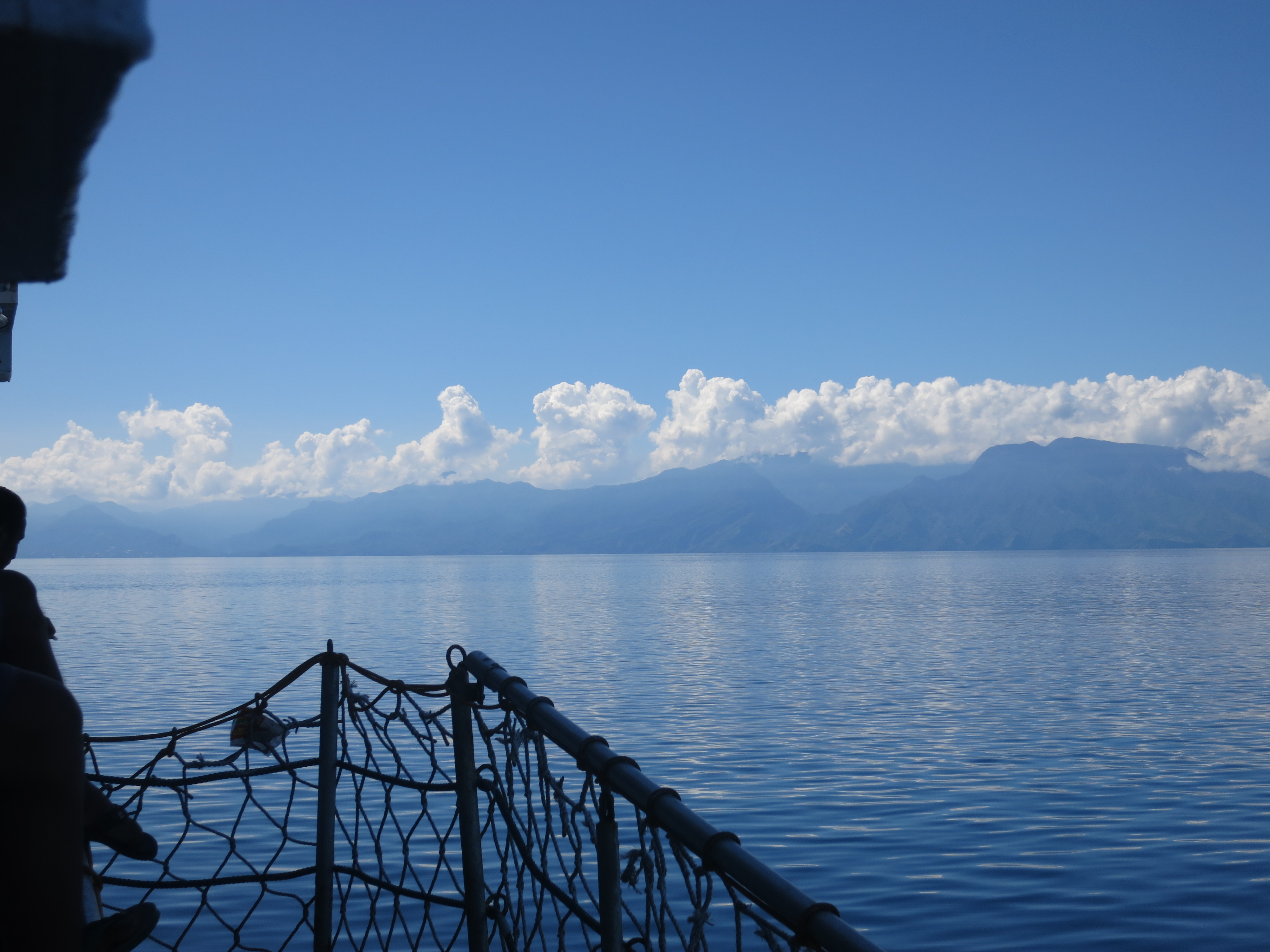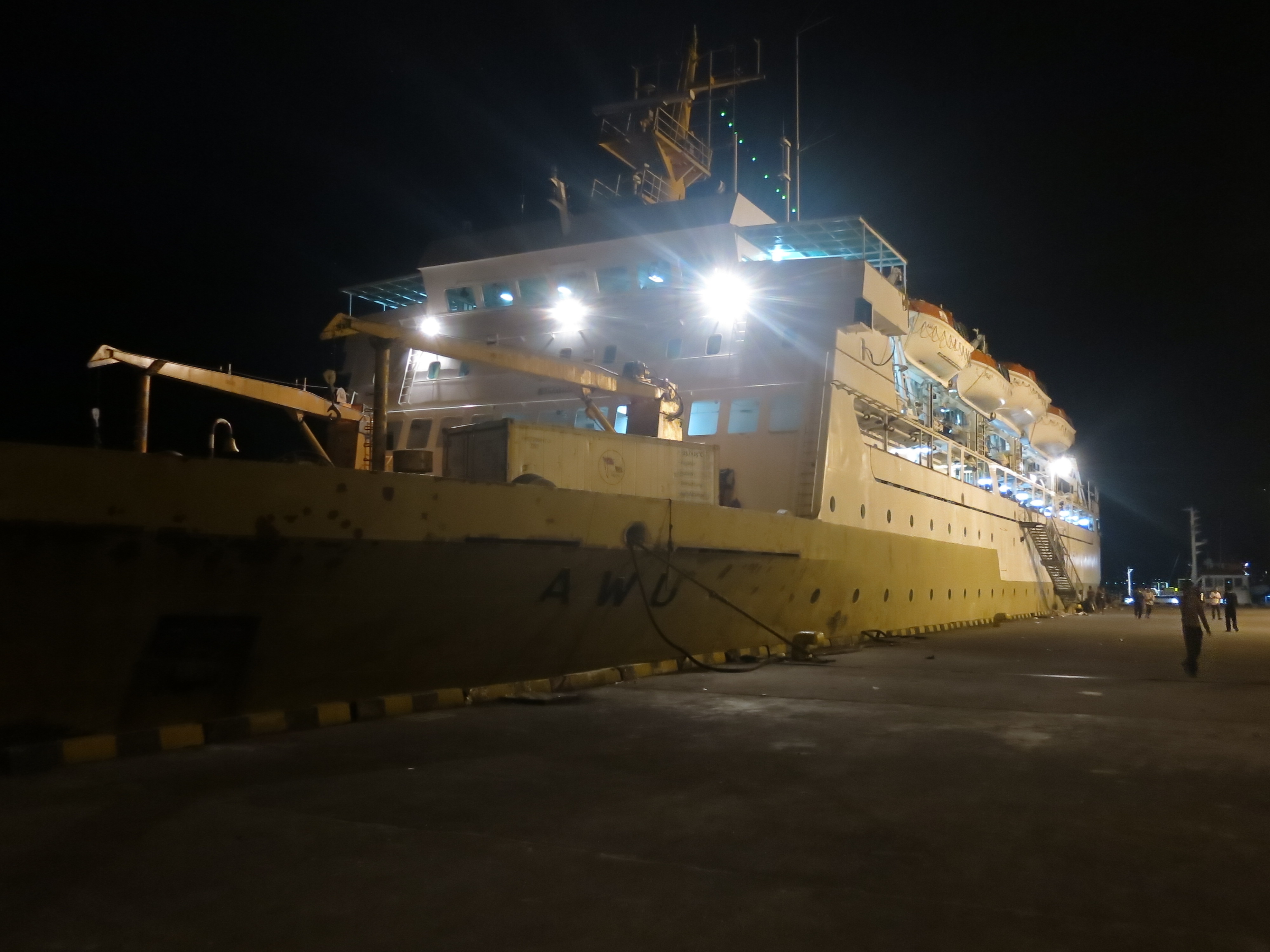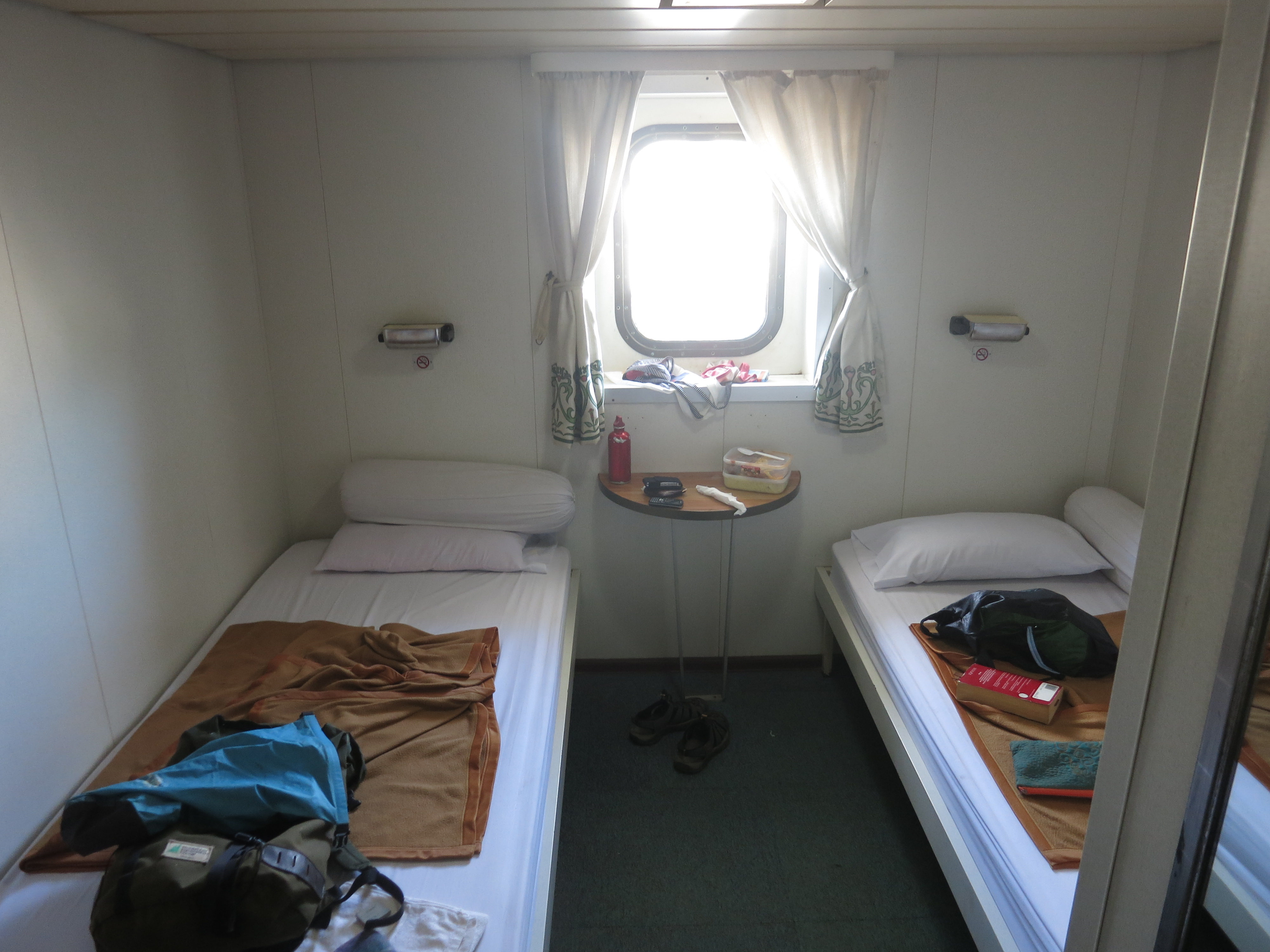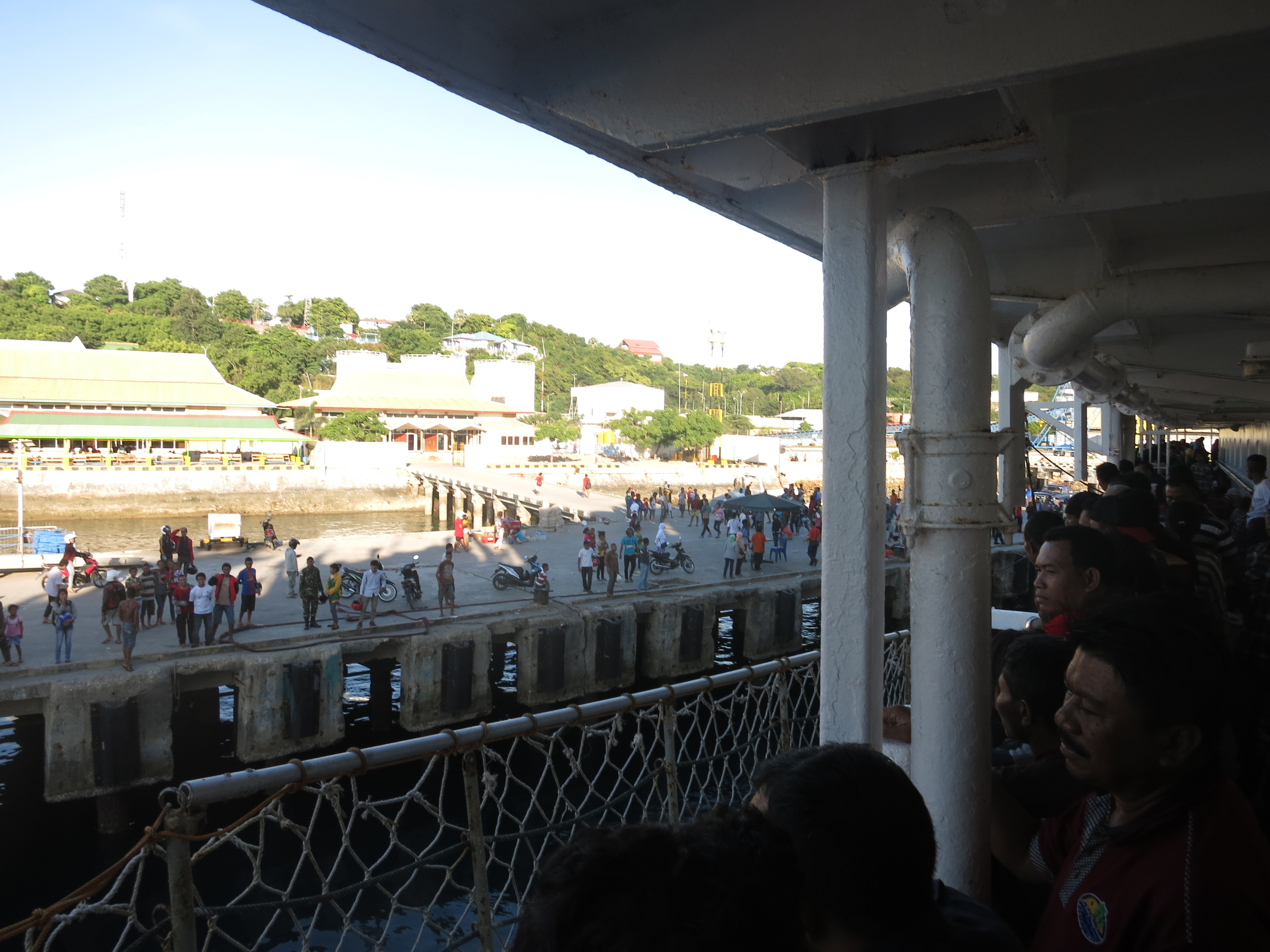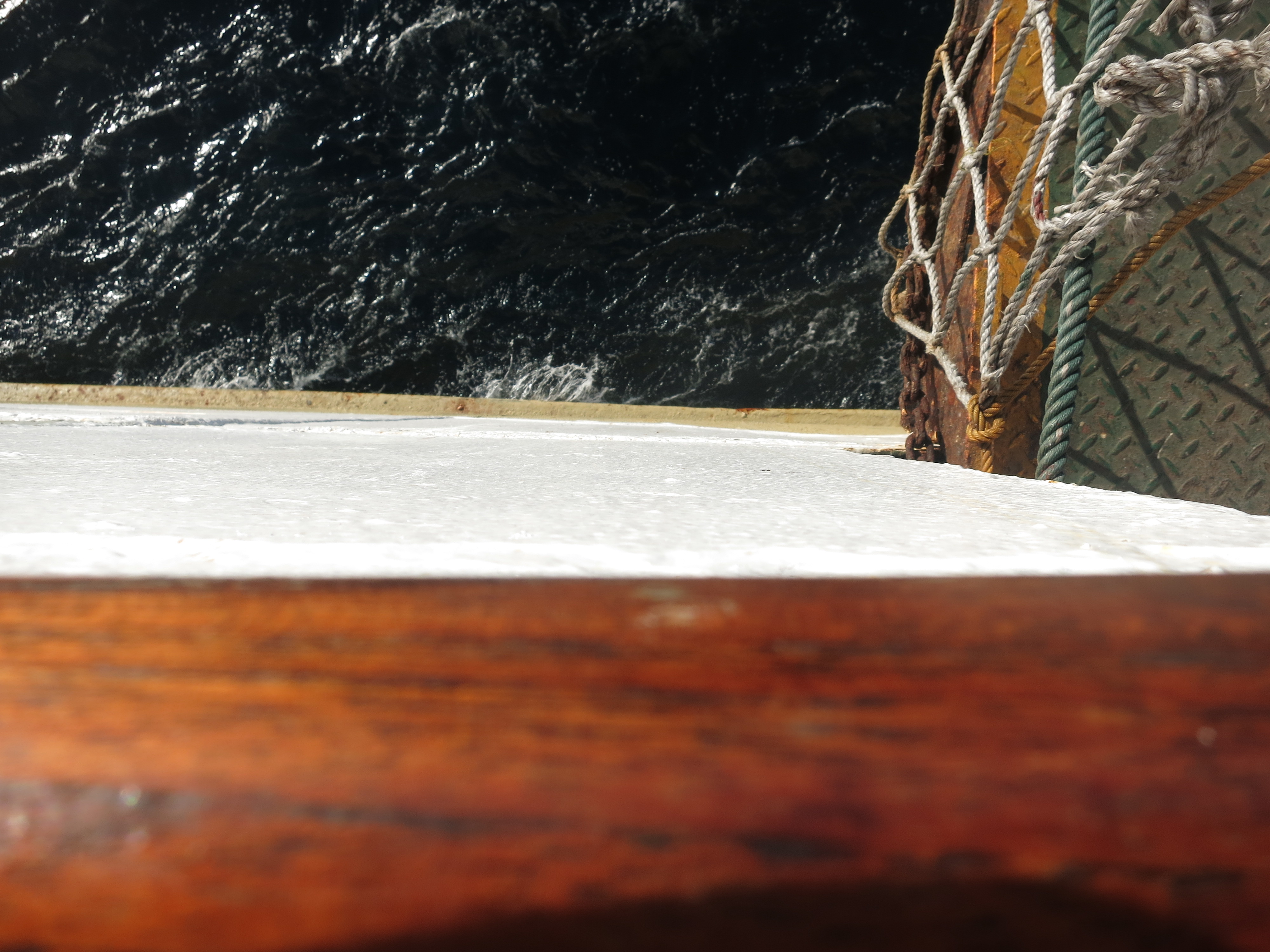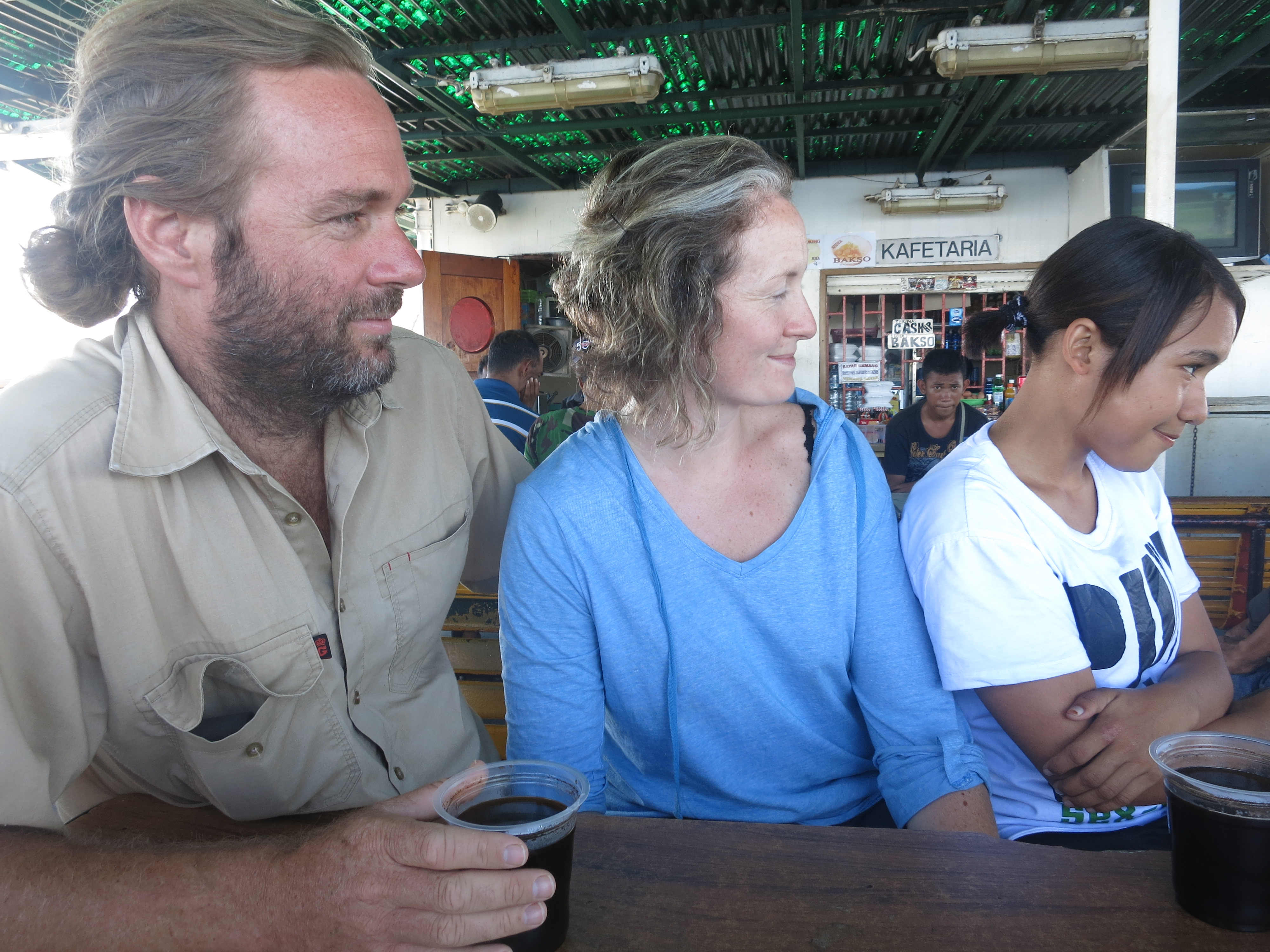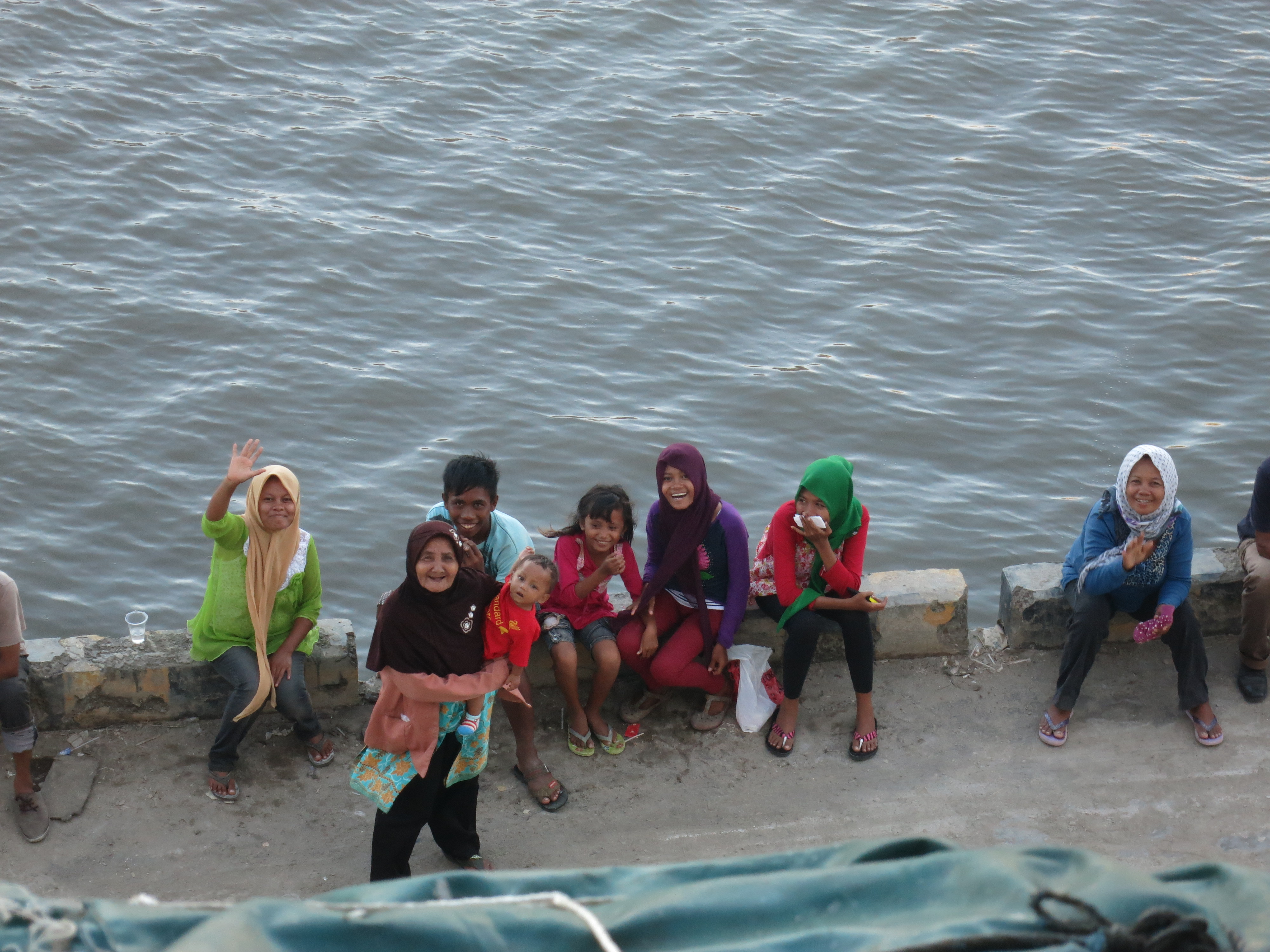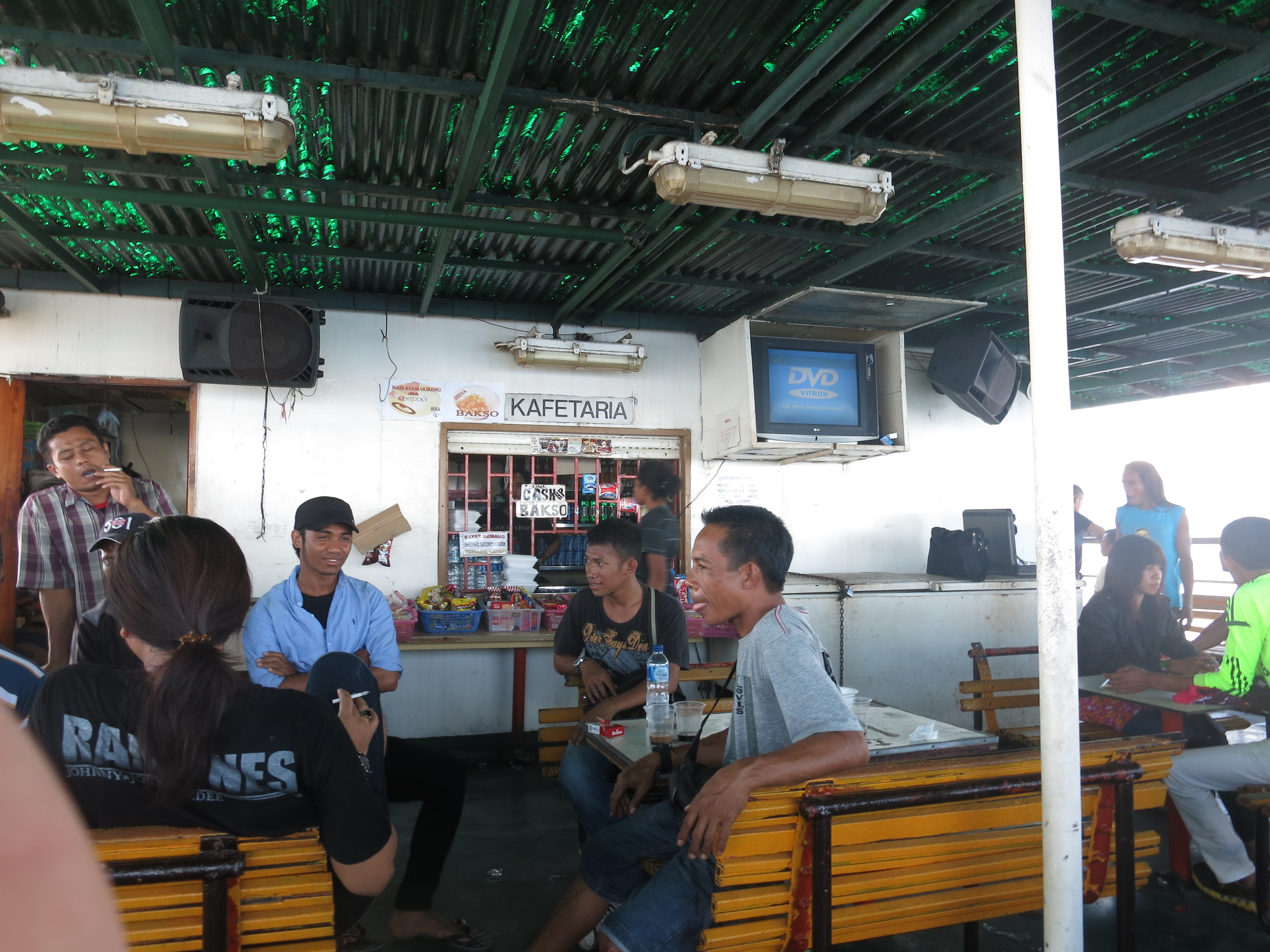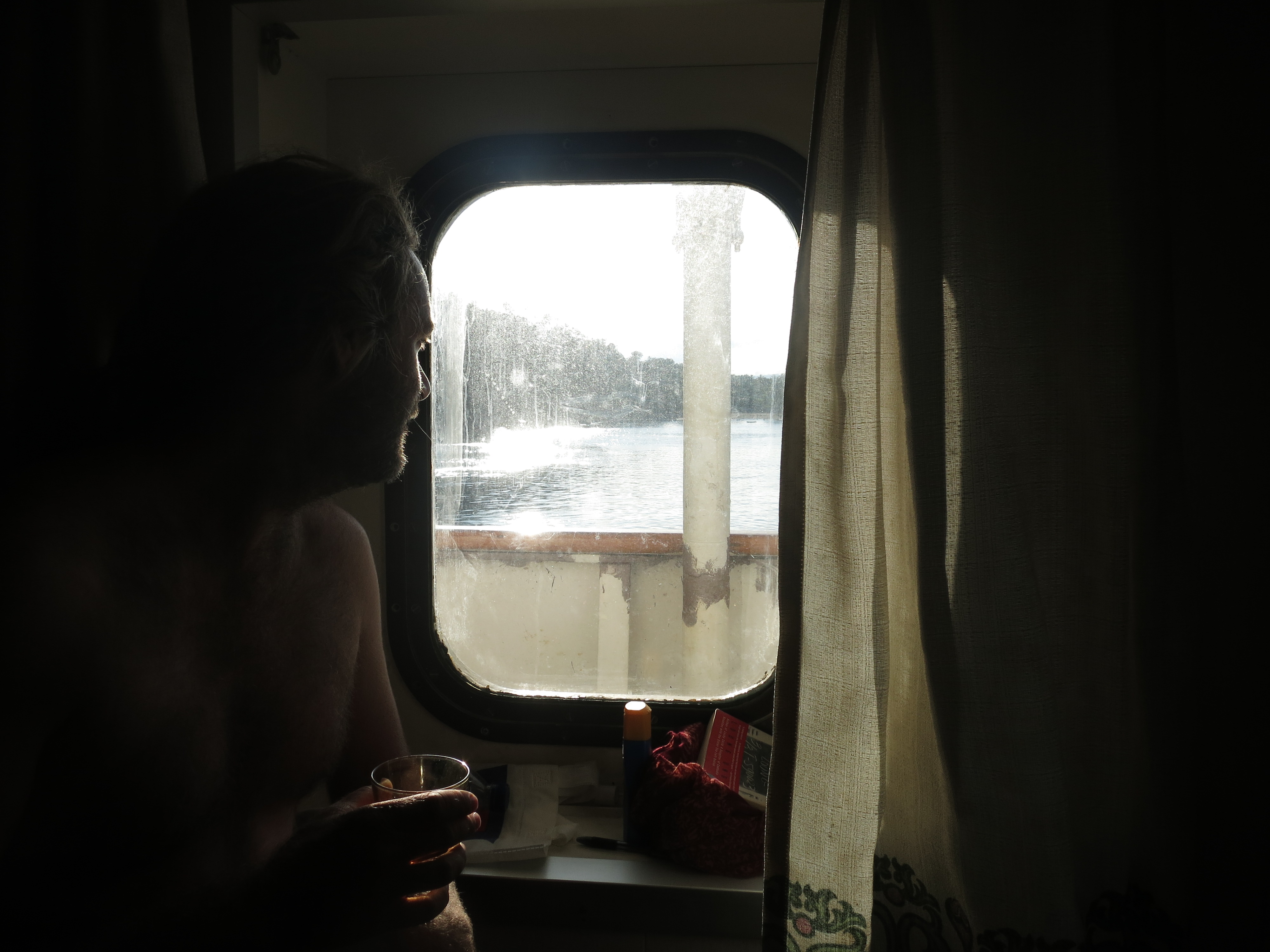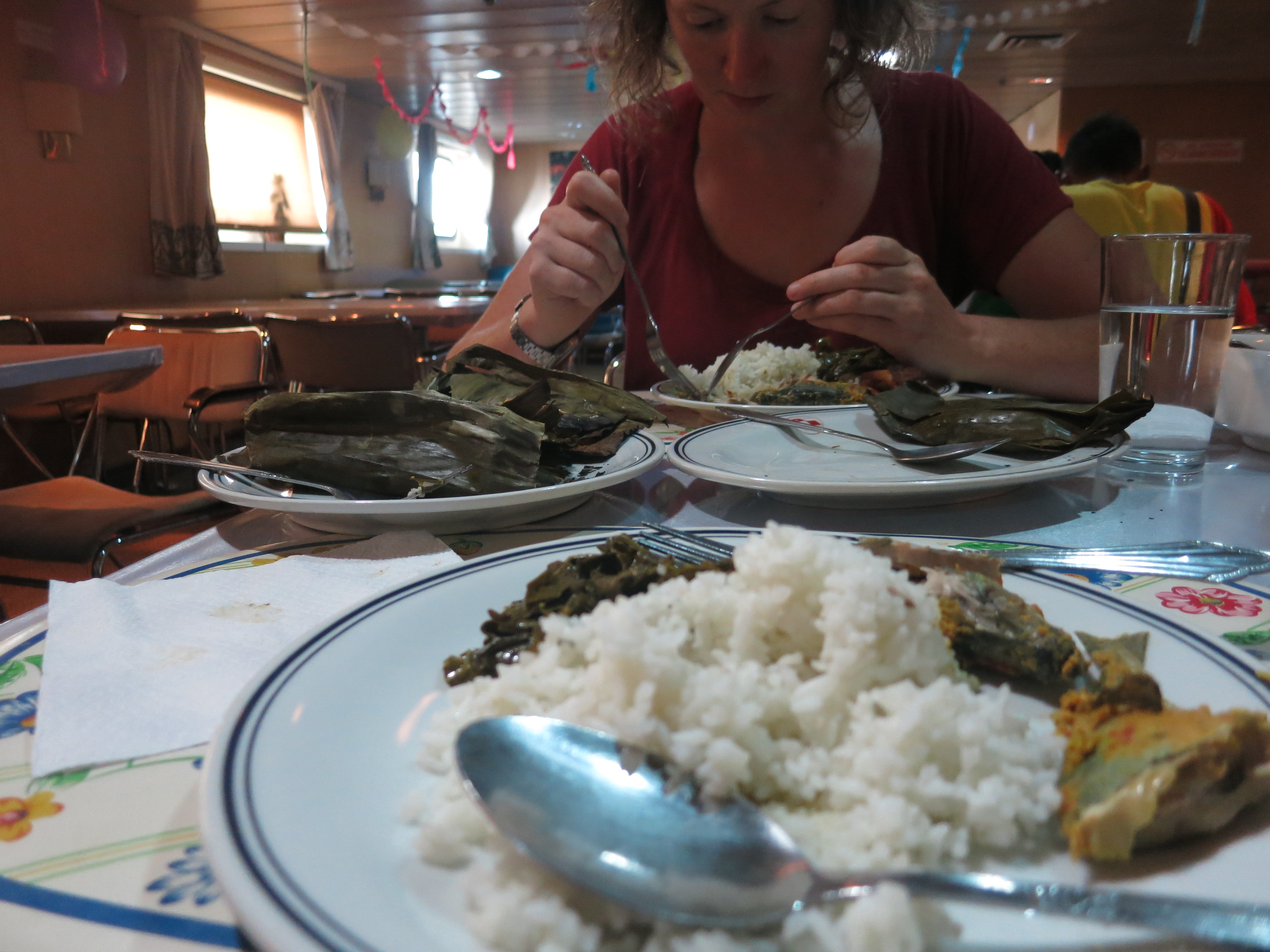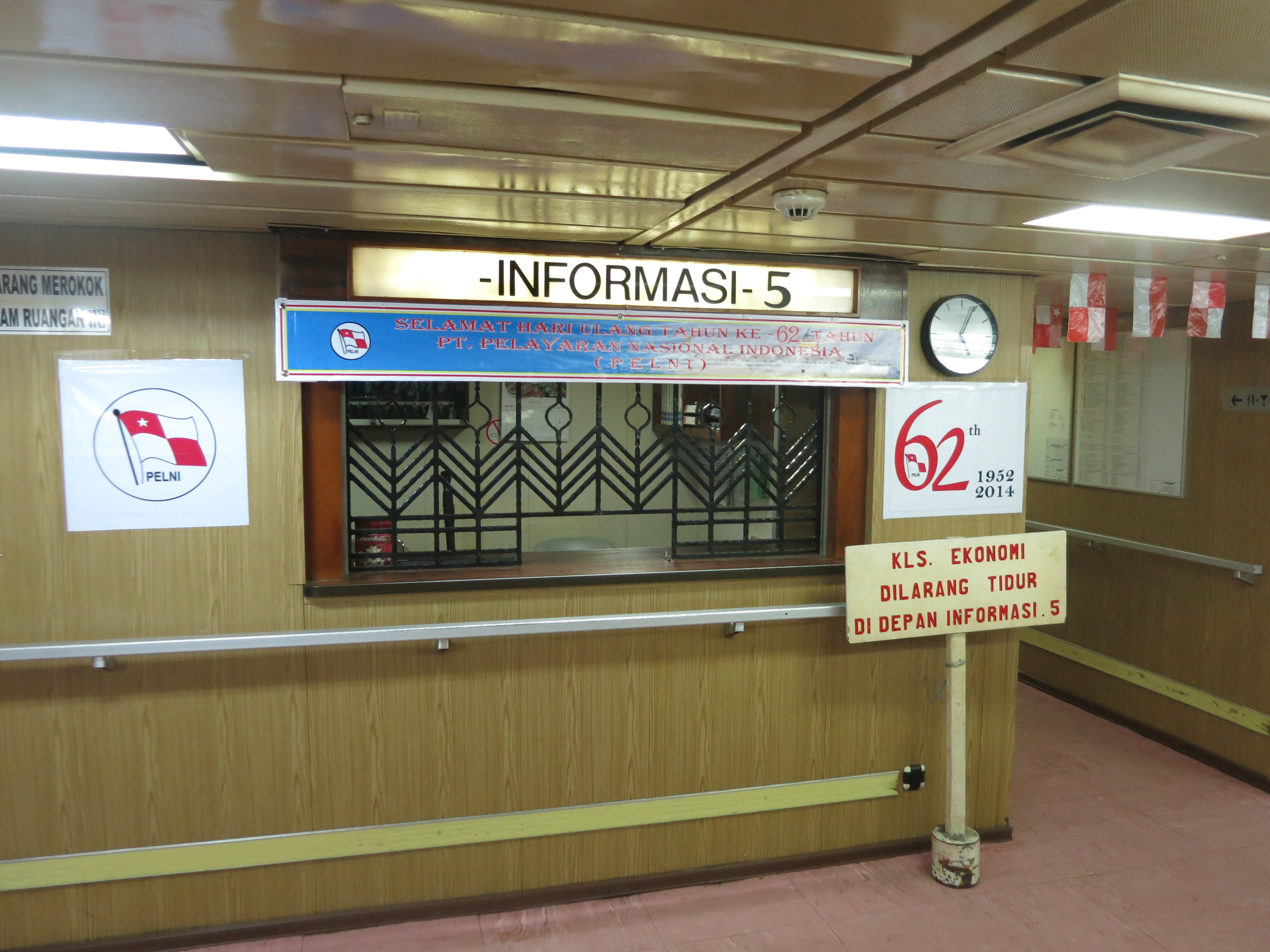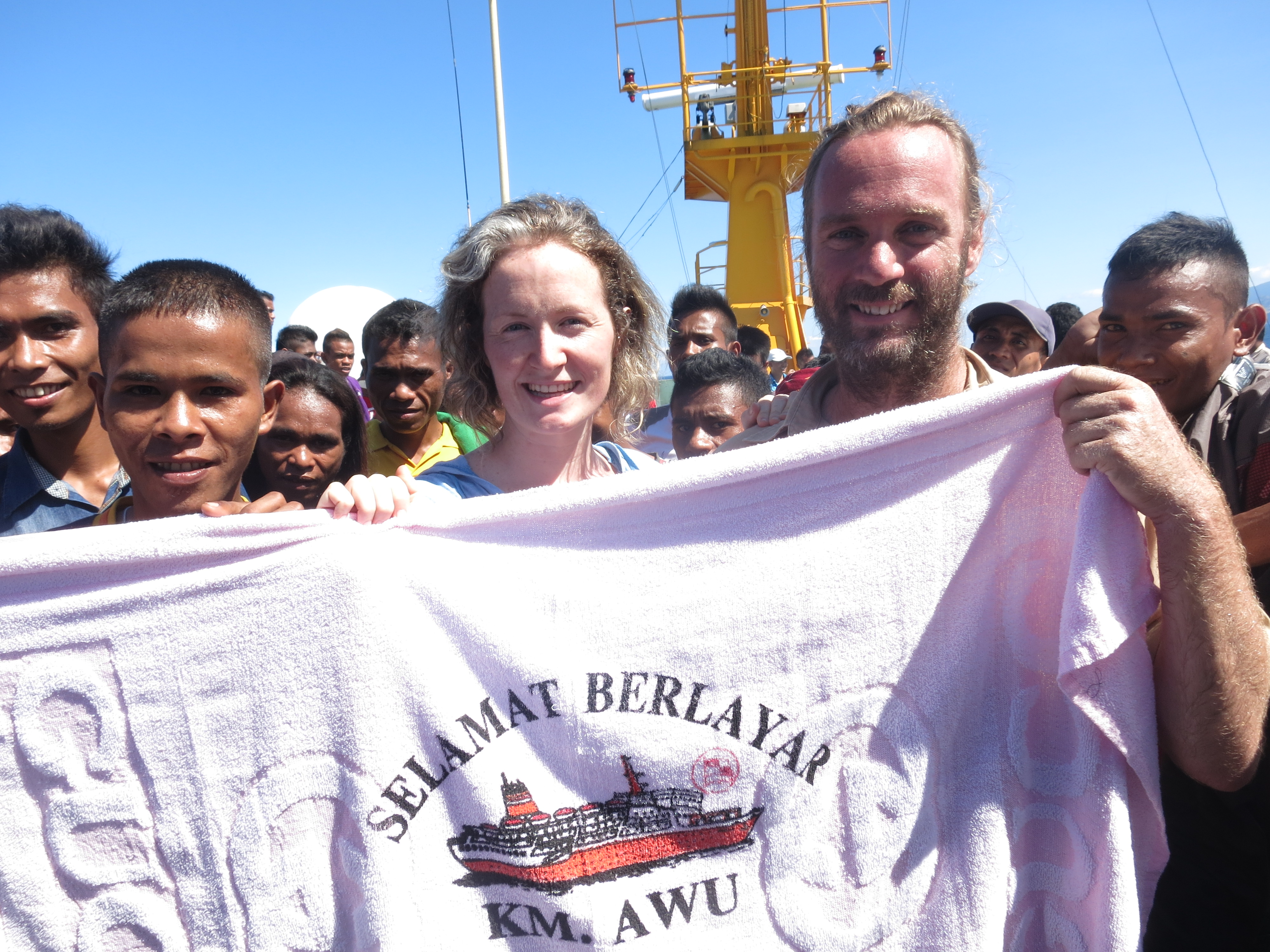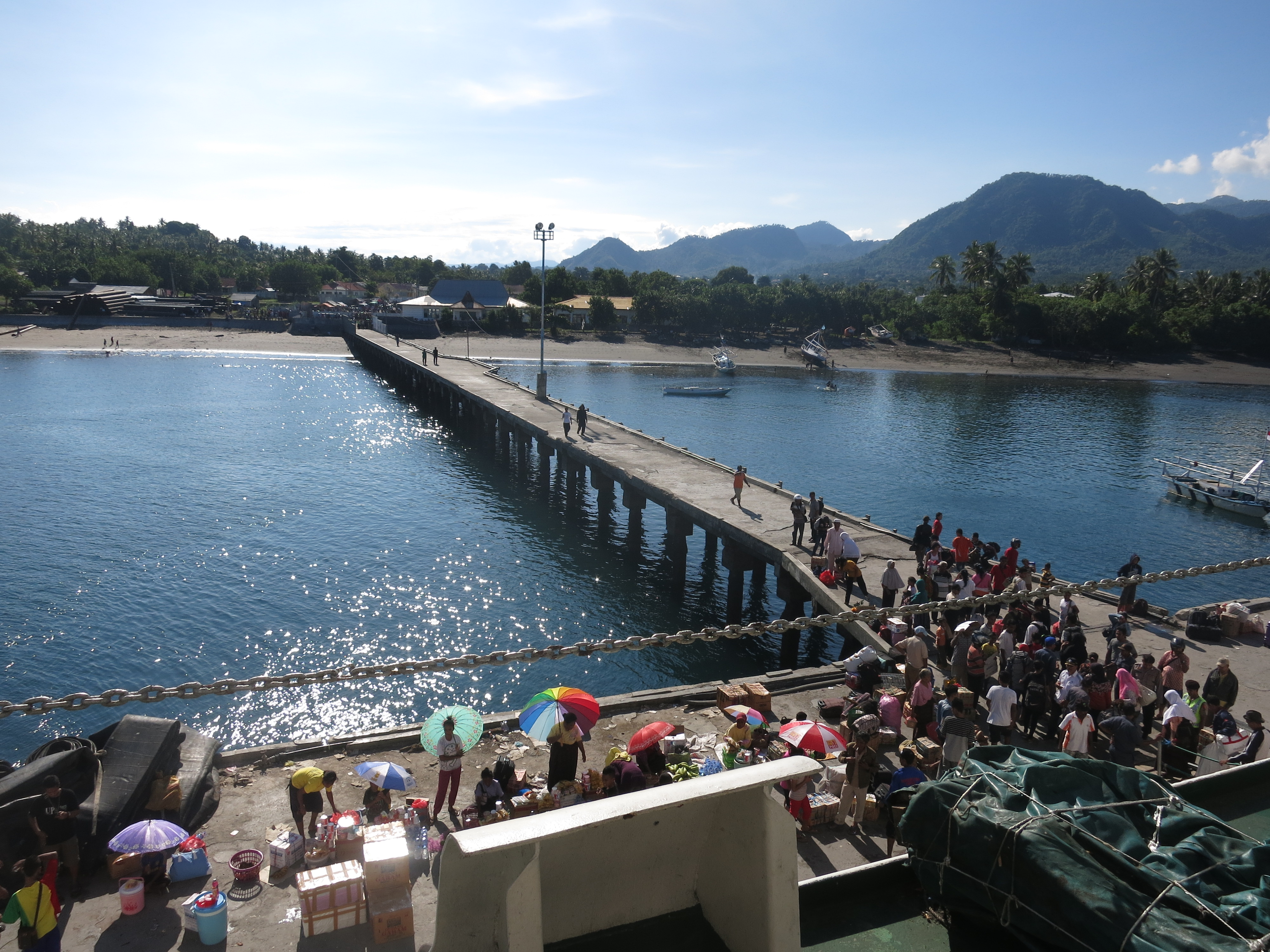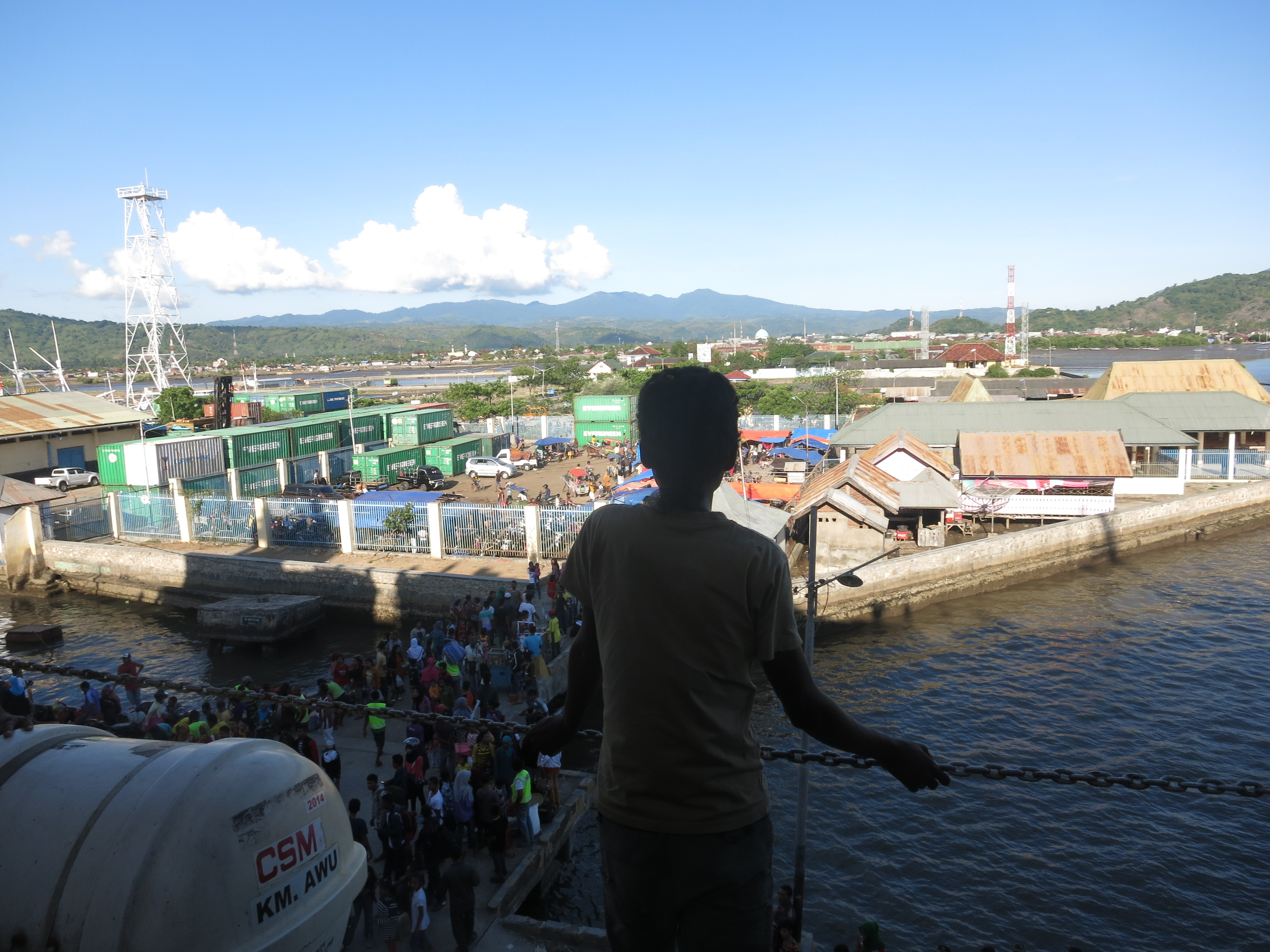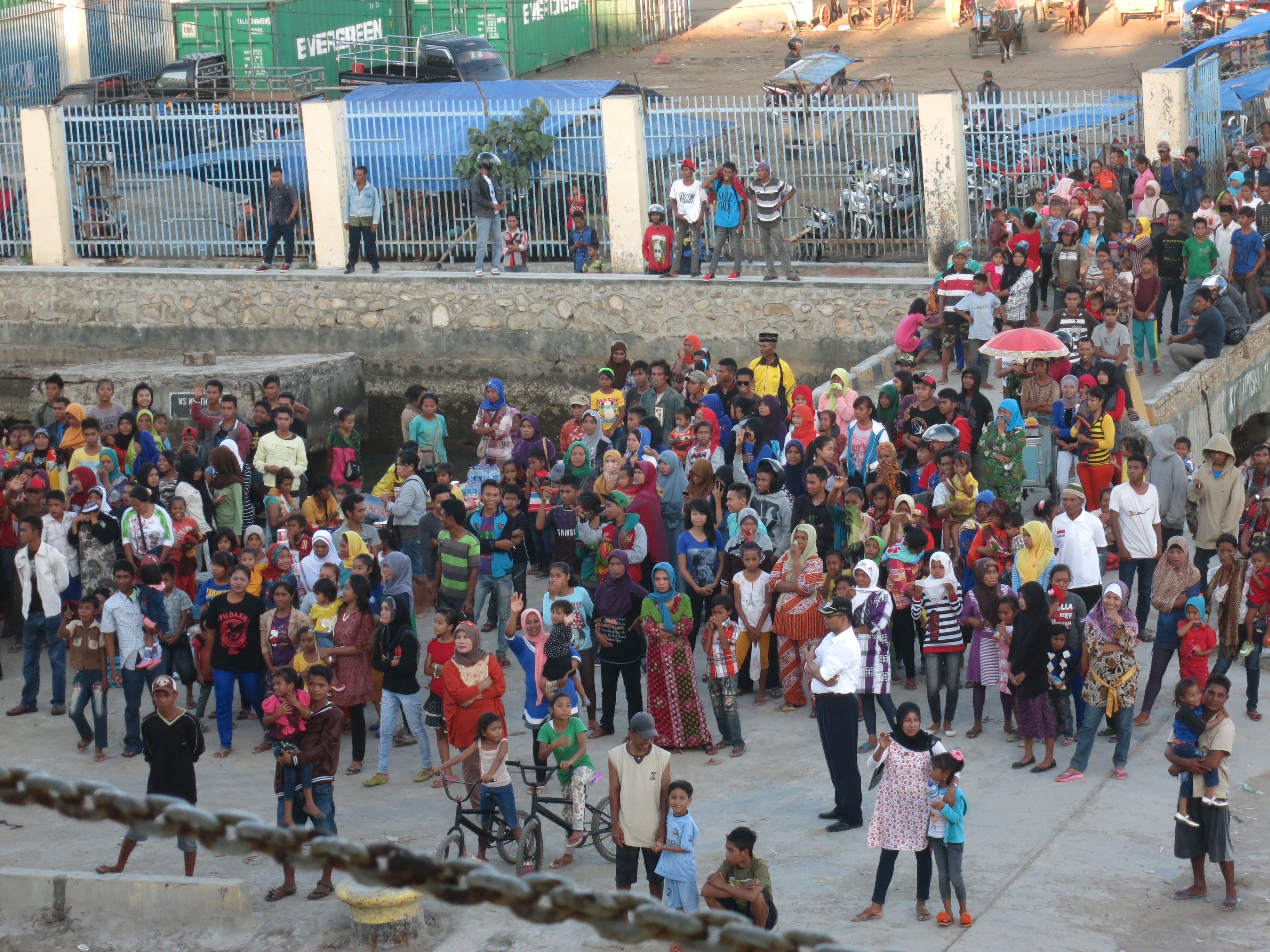South of Flores
Indonesia is one of the last places in the world to still have a functioning network of passenger ships, the state-run Pelni service.

I'd been really looking forward to getting onto one of these boats for a long time – which, my reading had led me to believe, would be crowded, functional but comfortable enough. A real passenger transport ship, not some lily-livered tourist trap!
And so it was.
The KM Awu docked at Benoa
The KM Awu is an ageing ex-European (possibly German, if the original ship diagrams are anything to go by) passenger ship, 99.8m long according to the statistics on the ship diagram and rated for 969 passengers and 84 crew.
Of these 14 are first-class, 40 second and the remaining 915 are economy, which means large dormitories with low wooden bunks with thin mattresses on top. But, in addition to these passengers, there are those who have a non-berth ticket, meaning they sleep on the ground on deck, in corridors, even on stairwell landings. At times, the ship was so crowded it was very difficult to move anywhere at all outside, with bodies and luggage taking up almost every spare space. Indeed, as more passengers joined the ship the crew progressively opened up more areas marked as restricted or crew only, but still there was little space. It's hard to estimate how many extra passengers there were, but at a guess it'd have to be well over an extra 500, so, in addition to the 84 rated crew, at times there must have been getting on to 2000 souls on board.
The vessel is certainly showing its wear, but is well-maintained in the face of the constant pressure of numbers it obviously gets. The essentials function well enough and within limits everything is clean and tidy – we certainly enjoyed the trip. We took first-class berths, meaning two beds in a room, as opposed to second-class' four single-gender beds per room or the challenge of four nights in a loud, crowded, smoke-filled dormitory! This fare included all meals. It was a little less than the equivalent airfare or about half the price of an overnight bus to Alice Springs, but I imagine out of reach of most of the other passengers, who overwhelmingly travelled economy or non-berth.
Our berth
Leaving Kupang
For the detail tragics, we travelled from Kupang to Surabaya on Java, leaving only an hour late from Kupang some time after 16:00 on Saturday the 26th April and arriving three hours late, at midnight the following Wednesday, at our destination. En route we stopped at Rote island, Sabu (Sawu island), Ende (Flores), Waingapu (Sumba island), Bima (Sumbawa island) and Benoa (Denpasar's port, Bali).
The view over the side!
We have again been struck by the friendliness of Indonesians, with plenty of people smiling, saying hello and happy to chat – in as far as the language barrier allows! Obviously, we're also a bit of a novelty in general, especially on the boat, where we've been the only westerners. People have been very keen to know where we've from and, despite the disgraceful behaviour of my government towards Indonesia, I haven't encountered any obvious animosity on account of my nationality.
Posing for one of a great many photos we were asked to be in!
Some of the friendly people at Bima, bidding their relatives adieu
Hanging out at the cafeteria
Another joy of the trip has been the scenery, with islands large and small everywhere, in the east rising sheer out of the ocean and becoming lower and more gradual as we've come west to Java. Sunrise and sunset have been particularly beautiful times to be on deck and watch the day pass. Sunset, with the Muslim call to prayer playing over the PA, is especially atmospheric.
*Flores sunset*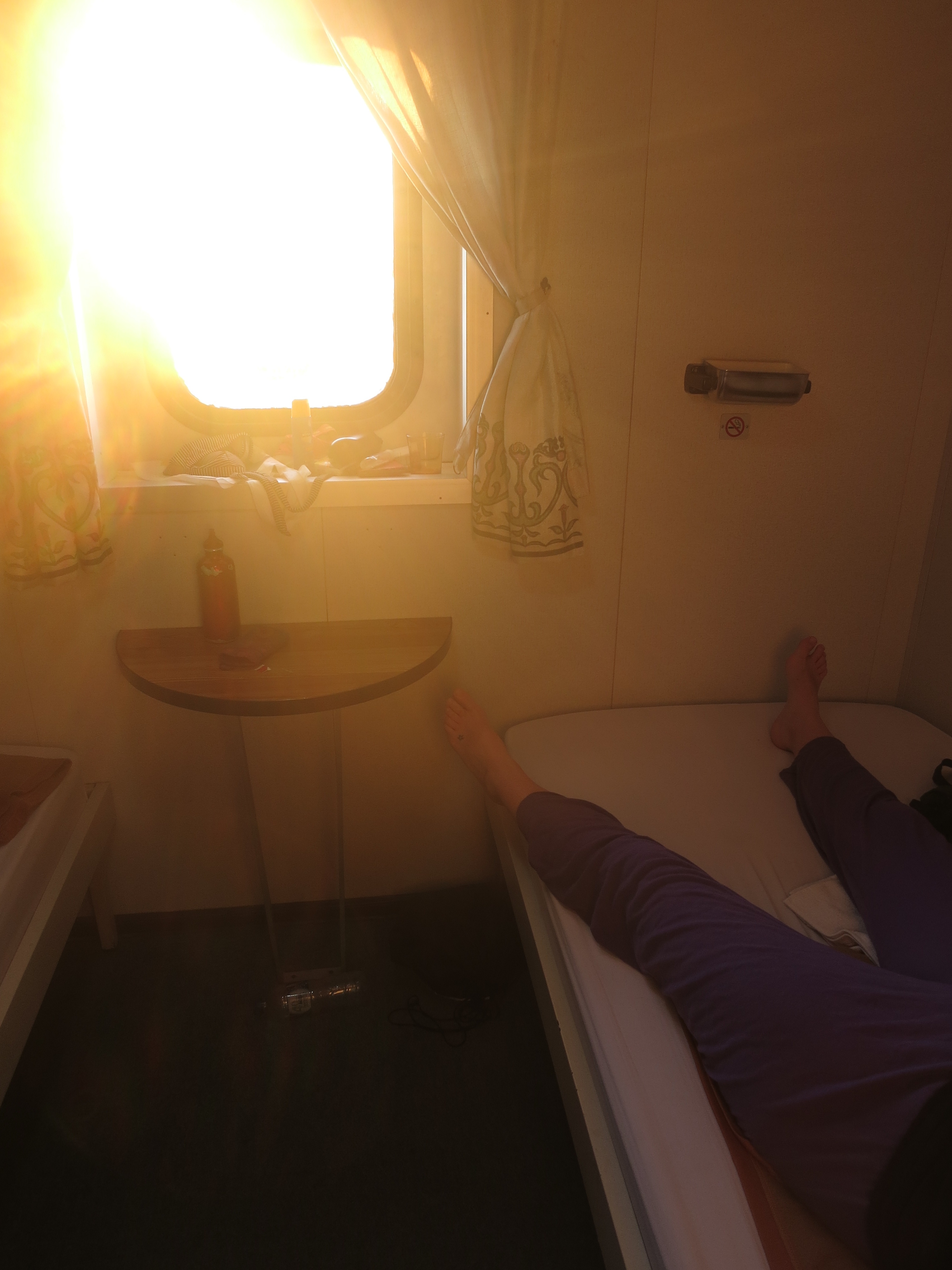
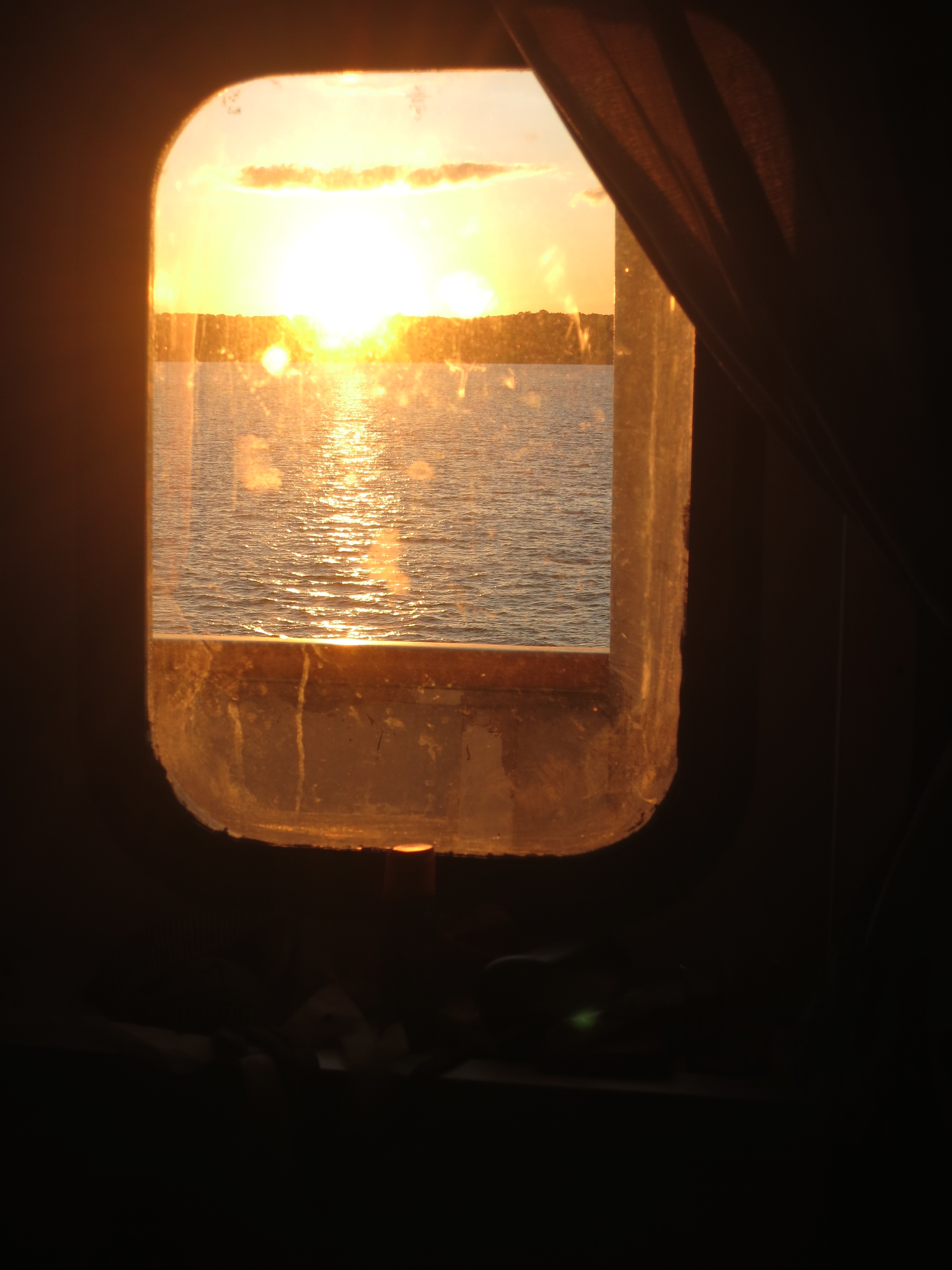
But, generally, it was a trip of slow times, time to read, nap, look out the window or catch a lungful of salty air and generally get into the slow rhythms of life at sea.
Whiling away the day
And eating the modest, but adequate, meals in the sparsely populated dining room at the somewhat eccentric, to us at least, times of 06:30 for breakfast, 10:30 for lunch and 17:30 for dinner. At lunch the karaoke was usually on with the resident singer pumping out a few dutiful numbers; but it was the officers, all male, who were most enthusiastic, pumping out songs with the volume up loud and even occasionally dancing at the late old hour of 10.30 in the morning!
Lunch
The information counter, proudly proclaiming Pelni's 62nd year of operation.
Being the only westerners, we were an object of constant attention and made to feel very welcome. There was, as far as we understand it, celebrations for the 62nd (or 62th as the posters had it) anniversary of Pelni, so the dining room had streamers and balloons and, one fine morning, a tug-of-war on the top deck, which I was made to understand I would be competing in! We were in teams of six I think, with five teams competing. Well, I'm pleased to say, after a gruelling few rounds in which we remained unbeaten, I was part of the winning team, after which I was put centre stage to receive the prize and celebrate our victory and pose in yet more photographs. The prize was a box of towels, emblazoned with a picture of the good ship KM Awu!
Victory is ours!
Tug-of-war!
Apart from the peregrinations of the sun, meals and slightly surreal moments, the other big event was coming into port and watching the saga of disembarkation and embarkation – usually along one narrow gangway, with no order and people, usually with lots of luggage, struggling in opposite directions, whistles blowing, people shouting, but general, though largely good-natured, chaos.
*Disembarking at Ende*
Ende
Bima
Bima farewell
See this slideshow for a few more photos from the journey
Two interesting articles on travelling with Pelni:
